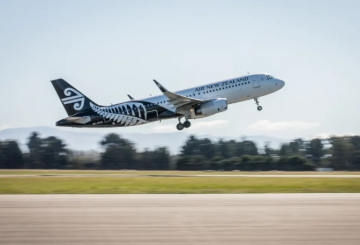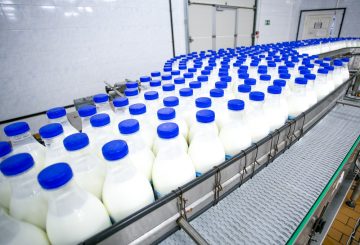Small businesses say they are at breaking point and are pleading with the government to give them additional support.
Business New Zealand and the National Party want the government to urgently set up a fund targeted at small business owners and their employees to access mental health support.
Meanwhile, Hospitality New Zealand wants the wage subsidy to be available even once Auckland moves to alert level 2.
Richard Bagnall, who owns Auckland’s Longroom, is losing about $12,000 a week and is stressed and anxious for his business.
“It’s the sleepless nights, it’s waking up in the middle of the night and starting to think about a whole bunch of things and thinking will we come out of this? What does it look like? What can I do to protect our people and our business?”
His company has been regularly checking in with staff, but even under level 2, he is not sure if he can offer all of them work due to the new restrictions.
Elle Armon-Jones of Vineyard Cottages was also finding it hard to find any certainty, with customers looking to change their wedding and Christmas party plans.
“With the level 2 Delta restrictions, everybody is more and more nervous about keeping their bookings in place in case this goes on longer, so this is not an easy time,” she said.
Hospitality New Zealand’s Auckland branch president Jamie Freeman said he has been flooded with emails from struggling business owners.
“It’s at breaking point to be honest [..] the messages that I’ve seen, the cries for help and it’s just not knowing what’s ahead.
“They just can’t plan and it’s not about whinging, it’s not about moaning, it’s just about keeping their heads above water,” he said.
Freeman said, even under alert level 2, it was not financially viable for some businesses to open their doors because of the new restrictions to adapt to Delta.
There are also fears about the mental health of those facing severe financial stress.
National’s mental health spokesperson Matt Doocey urged the government to set up a $10 million mental health support package for small businesses.
The proposed fund would be in partnership with BusinessNZ, regional chambers of commerce and economic development agencies.
Even before the most recent lockdown, a report by MYOB showed that more than a third of New Zealand small and medium sized enterprise (SME) owners had experienced a mental health condition since starting their business.
BusinessNZ’s Kirk Hope wanted the proposed fund to help fast-track support for SMEs.
“Typically smaller businesses will have less financial resilience, especially if they’ve been through five alert level increases,” he said.
The government did set up a $4.5m mental health fund in its tourism support package, but this was targeted towards the regions.
For those in the urban centres, Small Business Minister Stuart Nash said there are other supports available.
“We’re not planning a specific fund for this, but we put out a number of tools through business.govt.nz, which is a website that provides tailored advice for business.
“Business Mentors New Zealand provides mentoring, [there’s] christian.org, there’s the Mental Health Foundation, WorkSafe New Zealand, the 1737 [line], so there are a number of services out there,” he said.
Nash said the government does understand that times are really tough which is why the wage subsidy and resurgence support payments are in place.
There are no plans at this stage to continue the wage subsidy once Auckland moves to level 2.
However Finance Minister Grant Robertson said the government “will continue to talk to businesses about the economic environment and the challenges they are facing.”
He noted the government did recently announce a third round of the Wage Subsidy Scheme for businesses and another Resurgence Support Payment.
Source: RNZ news





























































